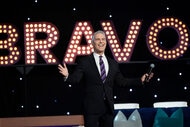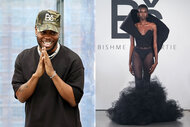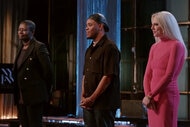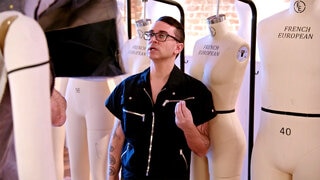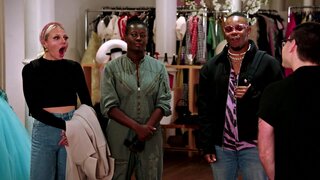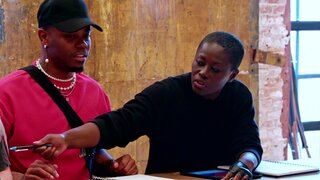
Create a free profile to get unlimited access to exclusive videos, sweepstakes, and more!
Elaine Welteroth on Growing Up in a Biracial Family in a Predominantly White Neighborhood
"It was important for [my parents] that we centered Blackness and celebrated Black culture in our household because they knew what we would be up against in the world," said the Project Runway host.

We’re continuing to amplify Black Voices. Join us every Monday in June for a dialogue on being Black in America on Instagram @BravoTV.
Bravo’s Project Runway host Elaine Welteroth joined Justin Sylvester, the host of E!’s Daily Pop!, for the June 22 Instagram Live panel, Amplify Our Voices: An Open Dialogue on Being Black in America. During the discussion, Elaine opened up about her childhood and her family’s experiences with racism.
“I grew up in a small town in Northern California in a predominantly white neighborhood. There was some diversity, but certainly not many Black children, and even fewer biracial kids,” explained Elaine. “I have a Black mother who is a very proud Black woman. A gospel singing Black woman, we grew up in the Black church. And my dad is the hippie, freestyle, guitar playing, rock music loving white man. And so I came from a really eclectic family, and there was so much love in our household.”
Elaine said her parents always made sure to have important conversations about racial identity with her and her brother, adding that it was a discussion they began before their children were even born.
“They agreed before we were born that we were going to be raised as Black kids, because that is how America will treat us and see us. And so while we are obviously very proud of where we come from and all of our heritage, it was important for them that we centered Blackness and celebrated Black culture in our household because they knew what we would be up against in the world,” she said.
Elaine explained that she and her brother experienced “different grades of racism” throughout childhood, but shared his experiences as an example.
“He’s had multiple instances in school where he was called the n-word, and what’s fascinating is anytime my brother was in trouble, without fail they would call my mother. Except for the times that my brother was called the n-word. Those were the times that the principal’s office would call my father,” she said. “I think they assumed they would be met with a little bit more of a sympathetic response, and my father was not the one. He leveraged and used his white male privilege to empower his Black family in this community.”
As a result of frequently discussing equality with her parents, Elaine said, “I felt very equipped with the ability to call things as I see them and stand up for myself.” Elaine also credits her mother for helping her get through the stages of life in which she felt she needed to change herself to fit in.
“I’m so grateful that I had a Black mother role model,” she said. “She’s really saved me from a lot of identity crises over time.”
